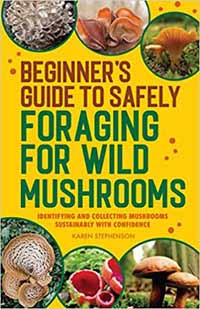

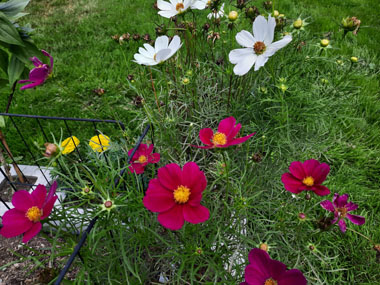
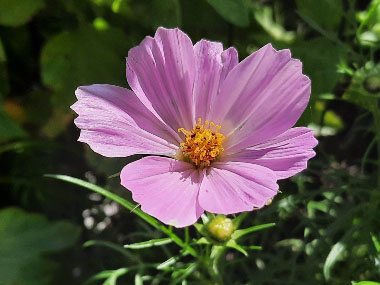
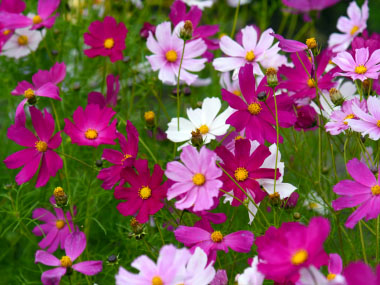
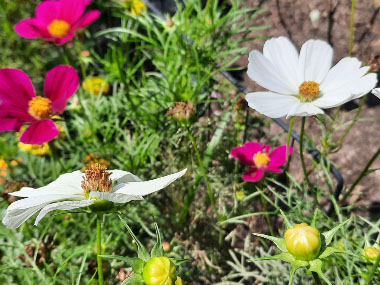
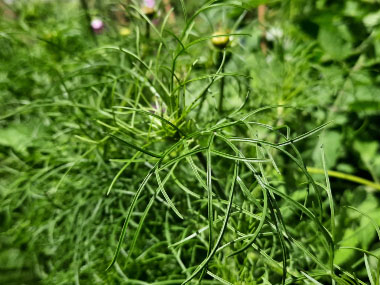
To support our efforts please browse our store (books with health benefits, etc.).
Cosmos bipinnatus, simply called cosmos, is native to Mexico. Across the U.S. and Canada, it is a garden favorite because it is low-maintenance, late-blooming, and it is quite showy. Single, saucer-shaped, daisy-like flowers grow in a variety of colors including red, pink or white rays; all have yellow centers. They bloom from early summer to frost making them a highly-sought after annual. In hot and humid summer conditions, plants may slow down considerably in late summer. Cosmos have escaped gardens and naturalized, particularly along roadsides, fields and waste areas. The genus name comes from the Greek word kosmos meaning beautiful; the specific epithet refers to the bipinnate leaves.
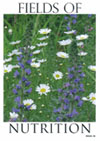 Fields
of Nutrition has medicinal benefits and vitamin/mineral content of Cosmos.
Fields
of Nutrition has medicinal benefits and vitamin/mineral content of Cosmos.
Seed Life Cycle
This species of cosmos is primarily grown as an annual. However, the seeds the birds do not get, go to the soil and can germinate the following year.
Colours
Typically, Cosmos bipinnatus varieties offer a range of colors, most commonly white, pink, and red.
Height
Cosmos can reach anywhere from 60 to 150 cm (2 to 5') and sometimes taller.
Health Benefits
Cosmos bipinnatus contains several flavonoids, including butein, luteolin, tricin, quercetin, butin, and others, primarily found in the seeds and petals. This plant also has monoterpenes, sesquiterpenes, and phenols. Traditional medicine in China and Mexico used this flower as a hepatoprotector and a remedy for headaches and flatulence. The use of plants in the genus Cosmos have been used as an anti-inflammatory and antifungal. Cosmos also contains polyphenols.
Dye
This species of cosmos and other varieties are used as a dye. They tend to produce soft, pastel colors such as pale yellows, creams, and greens, with the specific shade depending on the flower color, fiber, and use of mordants like iron or indigo.
Similar Plants
Cosmos sulphureus.
Winter Survival Food Handbook

PDF Plant Magazines
Types of Wild Food
Geographic Zones Seasons
Disclaimer
EdibleWildFood.com is informational in nature. While we strive to be 100% accurate, it is solely up to the reader to ensure proper plant identification. Some wild plants are poisonous or can have serious adverse health effects.
We are not health professionals, medical doctors, nor are we nutritionists. It is up to the reader to verify nutritional information and health benefits with qualified professionals for all edible plants listed in this web site. Please click here for more information.
Why Edible Wild Food?
- Food costs are rising
- Free, wild food is readily abundant
- Wild food adds nutrition to your diet
- Wild food can help treat various medical conditions





